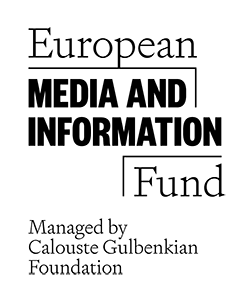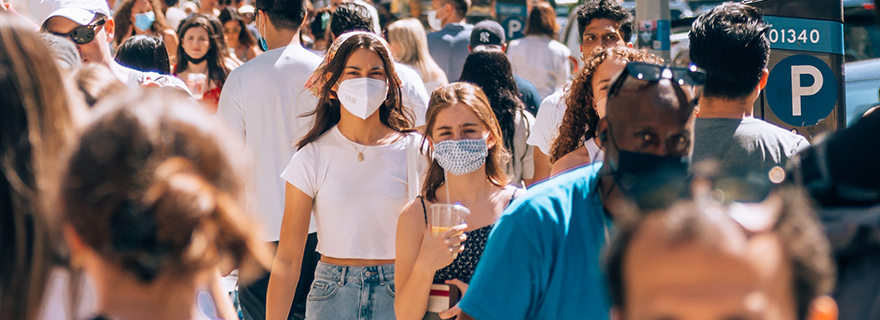Understanding Misinformation and Science in Societal Debates
In a new research project, we explore the interaction between misinformation and science on social media during COVID-19. This is part of the new research line on the role of science in societal debates of our Focal Area Engagement & Inclusion.
The past years have shown that science can play an important role in societal debates. Science was clearly pivotal in the development of COVID-19 vaccines. In addition, many of the interventions and policies, such as masking, school closures or even curfews, were presented as evidence-based solutions, motivated by scientific advances in our understanding of the virus. In return, these policies and scientific findings were part of broader societal debates, with sometimes vocal proponents and opponents in contentious and sometimes polarised settings. Although very visible during the COVID-19 pandemic, science also plays a large role in other societal debates, such as the nitrogen debate in the Netherlands, or climate change.
As a part of our Focal Area of Engagement & Inclusion at CWTS, we explore the role of science in societal debates. We know that science does not offer unequivocal facts for societal debates or clear course of action for policy. Some of the questions that guide our research line include: in societal debates, are different “sides” informed by different literatures, perhaps reinforcing their own convictions? Or do different sides share a common evidence base from science? Does new scientific information lead to a convergence or to a divergence of opinions? Does the open availability of scientific literature shape the role of science in societal debates? Do scientists and societal actors interpret scientific results differently? How are these interpretations used in arguments? How do scientists themselves engage in such societal debates?
In addition to science, misinformation also plays a large role in societal debates. During COVID-19, this prompted the World Health Organisation (WHO) to speak of an infodemic. Some of the misinformation might be countered, for example, by fact-checkers, such as maldita.es in Spain, or the local “Nieuwscheckers” here at Leiden University. There are also campaigns to raise awareness by the public, such as “Ask for Evidence” or “Stop, Think, Check”, to help prevent the spread of misinformation. But how does science interact with misinformation?
Science and misinformation
We are excited to start a new project on Understanding Misinformation and Science in Societal Debates (UnMiSSeD). In this project, we will study the interaction between misinformation and science during the COVID-19 pandemic using both quantitative and qualitative approaches. Our quantitative analyses will be limited to Twitter (now X), based on more than a billion tweets posted during the COVID-19 pandemic, combined with information on millions of publications and tweets about them. We will go beyond Twitter in our qualitative analyses to explore how discussions permeate the porous boundaries of social media. We will collaborate with Fondazione Bruno Kessler (FBK), lead by Riccardo Gallotti and University of Geneva, lead by Tommaso Venturini. We are happy that this project is supported by the European Media and Information Fund.
New perspective
At CWTS, we already have previous experience with studying connections between science and society, also in the context of COVID-19. We also studied how COVID-19 appeared in a media outlet. Much of our knowledge on science in social media is based on data from Altmetric and provides a good lens on which aspects of academic publications relate to being mentioned on (social) media. Previous projects at CWTS departed from science and explored where science was mentioned, referenced and taken up. However, this approach misses the broader contexts in which science is mentioned. Societal debates are multifaceted processes where scientific mentions are couched in and interact with other ways of knowing the world. In the UnMiSSeD project, our starting point are societal debates themselves. We explore when and how science becomes part of such debates, also in relation to misinformation and claims unrelated to science. In this way, we hope to better understand the role of science and misinformation in societal debates.
This project brings together a novel combination of scientific fields at CWTS. Traditionally, our centre is more focused on science (and technology) studies. The UnMiSSeD project brings in not only computational social sciences but also media and communication studies and has clear connections to science communication. We hope to build out these connections in the near future. Watch this blog for future updates on our project.
We are open to explore new opportunities, and if you want to connect to us on this topic, please do reach out!

The sole responsibility for any content supported by the European Media and Information Fund lies with the author(s) and it may not necessarily reflect the positions of the EMIF and the Fund Partners, the Calouste Gulbenkian Foundation and the European University Institute.







0 Comments
Add a comment